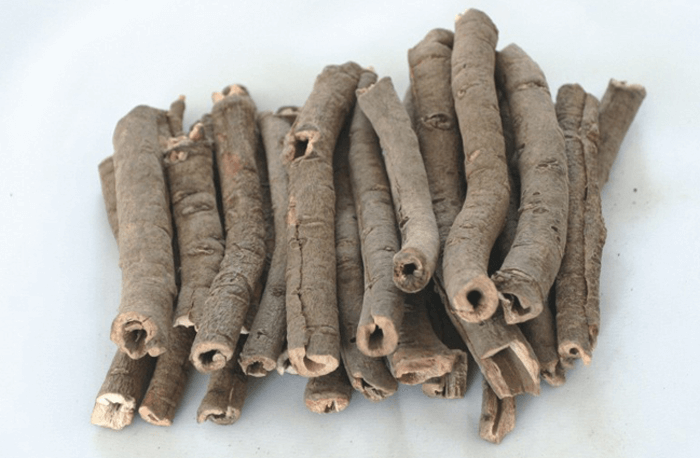Diabetes and heart problems are two major health problems in humans in recent times. With the advent of technology, the pace of the world has significantly picked up. To move on in today’s fast-paced world one needs the blessing of a healthy heart. The tea made from tree peony contains vast numbers of compounds like paeonols, tannins, glycosides, flavonoids, and triterpenoids to name a few. These chemical compounds have amazing effects on the immune, nervous, and cardiovascular systems of the body. The triterpenoids and paeonol present in the plant give it anti-oxidant properties which also make it a great stress reliever. Traditional Chinese medicines have made use of the root bark of tree peony, known as Mu Dan Pi, for centuries as an anti-inflammatory and an analgesic. It was taken as a tea or hot water infusion for best effects. The tea has a bitter taste and is cold.
Before finding use in medicines, peonies were first treated as a source of firewood and used to decorate homes. The ornamental value of the plant is due to its large and vibrant flowers which have a fragrant scent. Even though peonies are woody shrubs, these amazing flowers that bloom during autumn earned it the title of “king of flowers” in China. The petals of the flower can be used as a salad dressing or turned into a sauce. Since early history, the people of China used it for flavoring food. The root bark of the plant is the main source of medicinal value. Paeonol extracted from the root bark has anti-oxidant effects which help to boost the immune system and enhance the strength and endurance of the body. It also inhibits many pathogens.
The peony not only affects the immune system but also the nervous system. Paeonol helps to ease pain and stress by soothing the nerves and also relieves muscle spasms. The cold nature makes for a relaxing drink after work and its pungent behavior helps detox the body. The cortex moutan, as it is also known, helps to improve liver and kidney health as well. It reduces renal tubule injury and can treat ulcers. The anti-oxidant effect of paeoniflorin on the liver ensures its protection against inflammation and oxidative stress. An excellent anti-inflammatory, due to the presence of paeonol and glycosides, tree peony extract was popularly used in Chinese medicine to tackle fever, swelling, or pains. It was a good analgesic as well.
In a 2010 study on diabetes-induced mice, it was found to have an anti-oxidant effect on the diabetic subject. Paeonol not only decreases blood sugar levels but also manages to check blood cholesterol levels and thus helps to keep diabetes away. The tea made from the root bark helps in lipid metabolism and reduction of fat. The anti-oxidants reduce fatigue and fight off stress to stimulate both body and mind. Animal studies have shown the plant to have anti-depressant qualities just like gynostemma. Thus the plant not only acts on major biological systems of the body but also relaxes the mind and body from within.
The benefits of the tree peony on the cardiovascular system are extraordinary. It eliminates blood stasis and improves blood flow to major organs of the body. Paeonol can reduce high blood pressure as well as cardiac output thus ensuring good health of the heart. It can increase cerebral blood flow as well as coronary blood flow. As paeonol promotes healthy blood circulation in the major parts of the body, drinking tea prevents cardiovascular illness or stress. Furthermore, the plant inhibits blood clotting resulting in better blood flow. Coupled with rhubarb, peony can help heal hematemesis (vomiting of blood) and nosebleeds. However, pregnant women and people with blood clotting problems should avoid this tea at any cost.
The tree peonies have found extensive use in medicines over the last few decades in countries outside Asia. The plant has been cultivated in Europe, especially France and the UK, for its medicinal value for several decades now. However, in North America, the plant is cultivated mainly because of its ornamental value. Many more wild shrubs and herbs, like the peony and gynostemma, grow predominantly in large parts of Asia (mainly China, Korea, Japan, and parts of Taiwan and Vietnam) and have been used throughout history mostly for their excellent medicinal effects rather than their beauty.








